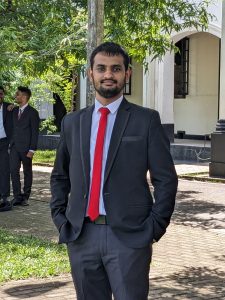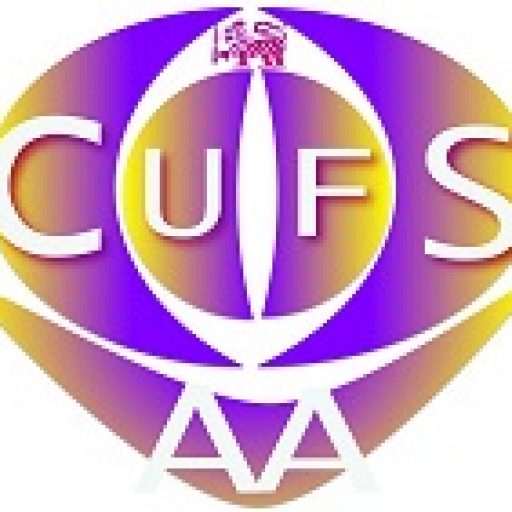Mr. W D R Kalhara is the winner of Prof. MLT Kannangara Gold Medal to be awarded at the Faculty of Science General Convocation 2025 at the Bandaranaike Memorial International Conference Hall, Colombo.
Published below is an Interview CUFSAA conducted with W D R Kalhara.
 CUFSAA Congratulates on his great achievement!
CUFSAA Congratulates on his great achievement!
Prof M L T Kannangara Gold Medal winner interview Questions
Where did you grow up? What was your childhood like?
I grew up in Padukka with my parents, surrounded by my family members and friends. I began my primary education at Kottawa Ananda Vidyalaya. After successfully passing the Grade 5 Scholarship Examination, I entered Asoka Vidyalaya, Colombo 10. After completing my G.C.E. O/L examinations, I entered Ananda College, Colombo 10, where I completed my Advanced Level studies.
Although my childhood had its challenges, my parents consistently encouraged me to focus on my studies while also exploring my interests. Their constant support has been the foundation of all my achievements.
My school life was not limited to academics. While at Asoka Vidyalaya, I was a member of the school orchestra as a violinist, a Junior Prefect, and an active member in several school societies, with the New Inventors’ Club being the most significant. Beyond school, I also had the privilege of serving as the Head Prefect of my Dhamma school, Sri Somananda Dhamma School, Galagedara, Padukka in 2016. These experiences enriched my school days and helped shape my personality, giving me confidence, leadership skills, and unforgettable memories.
Any specific incident which got you interested in science?
 Through my school studies, I understood that I loved science and mathematics more than any other subjects. I was also an avid reader and especially enjoyed science fiction. I still remember reading magazines like Vijaya, Mihira, Vidusara, and Pariganaka during my school days. I even built circuits published in Vijaya magazine and collected articles, especially those related to astronomy, which I read over and over again. In addition, my involvement in school societies gave me the opportunity to participate in various science exhibitions and programs. All these experiences, combined with my studies, not only improved my curiosity but also developed my interest in science and mathematics.
Through my school studies, I understood that I loved science and mathematics more than any other subjects. I was also an avid reader and especially enjoyed science fiction. I still remember reading magazines like Vijaya, Mihira, Vidusara, and Pariganaka during my school days. I even built circuits published in Vijaya magazine and collected articles, especially those related to astronomy, which I read over and over again. In addition, my involvement in school societies gave me the opportunity to participate in various science exhibitions and programs. All these experiences, combined with my studies, not only improved my curiosity but also developed my interest in science and mathematics.
Why (or how) did you decide to major in Physics?
Although I was always interested in science and mathematics, at first, I did not plan to become a physics major. Initially, I simply wanted to pursue a career that was based on and used science and mathematics. My decision to become a physics major, however, came about almost by coincidence.
During the period after completing my O/L examinations and before starting my A/L studies, I came across two amazing YouTube channels: Videokatha and TechTrack. This became a turning point for me. The videos on relativity, particle physics, and other fascinating concepts in physics completely changed my perspective on what I wanted to pursue in my higher studies. I had already read and heard about some of these concepts before, but at that time, I had both the background knowledge and the free time to understand them better and explore further. That showed me just how fascinating physics is, and sparked a deep curiosity that continues to drive my learning.
After completing my A/L examinations in the physical science stream with an excellent result, I chose to enter the Faculty of Science, University of Colombo, with the intention of majoring in physics. It was not an easy decision at the time, but I made it out of my passion for studying the fundamental concepts in physics and my goal of becoming a physicist.
Have you heard about the Late Prof. Kannnagara before hearing about this award? What do you know about him now?
Yes. The first time I came to know about Professor M.L.T. Kannangara was when I saw his photograph on the “Heads of the Department” board on the first floor of the Department of Physics. I later learned that he was renowned as one of the finest teachers in the department during his time. Upon his retirement from the University of Colombo, he was honored with the title of Emeritus Professor of Physics after a lifelong and dedicated career at the university.
Are you interested in Graduate studies? if yes in what area/why?
Yes, I am very interested in pursuing graduate studies, mainly in theoretical and computational physics. In particular, I hope to focus on particle and nuclear physics or computational condensed matter physics.
What is your career goal(s)?
My career goal is to become a physicist and contribute to the scientific community through my research work, making meaningful advancements in the field of physics.
What will you say to a new student who is considering a special degree at UoC?
At the Faculty of Science, University of Colombo, a wide range of BSc Special Degree (currently referred to as BSc Honours degree) programs are offered across different departments in the faculty. Within the Department of Physics, there are four such programs. Three of these are research-oriented: Physics, Computational Physics, and Engineering Physics, while one is industry-oriented, namely Electronics and IT.
Among these, I was selected for the Computational Physics Honors Degree program. This program mainly focuses on providing undergraduates with a strong foundation in the theoretical aspects of physics, along with computational techniques that can be applied to solve physical problems.
From my experience, the program offers a very student-friendly environment with many opportunities to learn from inspiring lecturers in the Department of Physics. Additionally, as part of the research-oriented honors degree programs, students are required to conduct a research project. This gives you exposure to scientific research and helps you develop the essential skills needed to grow as a research scientist.
In summary, all of the research-oriented honors degree programs offered by the Department of Physics, including my own, are excellent choices for undergraduates who are looking to pursue a research-oriented career in physics.
What extra-curricular activities you were involved in and how did they help you grow as an individual?
During my 4 years at university, I was actively involved in multiple clubs and societies, with the Astronomical Society and the Physics Society being the most significant. I first joined the Astronomical Society simply as an astronomy enthusiast, but later served as the Junior Treasurer in 2023/24. I also held the position of Assistant Secretary of the Physics Society in the same year.
As a member and later an executive committee member of these societies, I contributed to numerous activities, not only by participating but also by taking on organizing roles. As a resource person for the Astronomical Society, I participated in several night sky observation camps held island-wide, aimed at popularizing astronomy among school communities. We also organized workshops, seminars, and guest lectures to spread awareness and knowledge of astronomy within the university. One of the most memorable events was the all-island interschool astronomy and space science quiz competition, “Star Quest”. I was part of the organizing team for Star Quest ’22 as a society member and for Star Quest ‘24 as an executive committee member.
With the Physics Society, I was involved in some equally unforgettable activities, including being on the organizing committees of “Science Bus Phase III” (a physics outreach project for rural schools in Sri Lanka), the musical event hosted by the Department of Physics, “Sathsara”, and the establishment of the Journal Club of the Physics Society. The Journal Club of the Physics Society was especially important to me, as it was founded under the guidance of Prof. Lakmal Weerawarne to provide a platform for students to familiarize themselves with the Department of Physics’ current research focus areas, develop presentation and communication skills, and collaborate with faculty. I had the honor of serving as the main coordinator for its establishment.
Looking back, university life gave me not only academic knowledge but also a wealth of experiences and memories through these extracurricular activities. They helped me build essential soft skills such as teamwork, time management, and leadership. Most importantly, they allowed me to connect with brilliant minds from across the country, share knowledge, and gain valuable insights. While books provide academic knowledge, I believe it is extracurricular activities that truly shape undergraduates, helping them grow into individuals with strong personalities.
